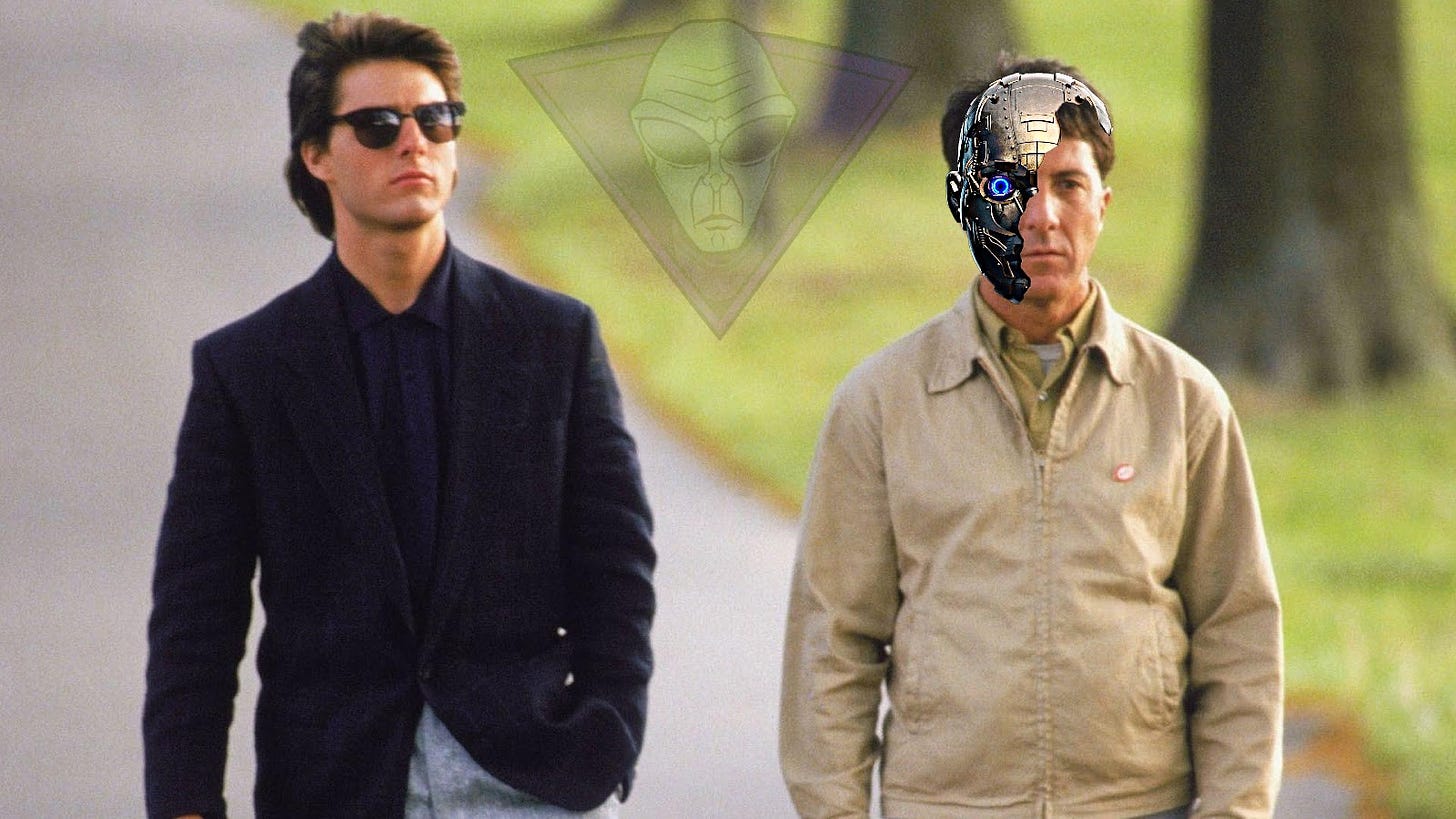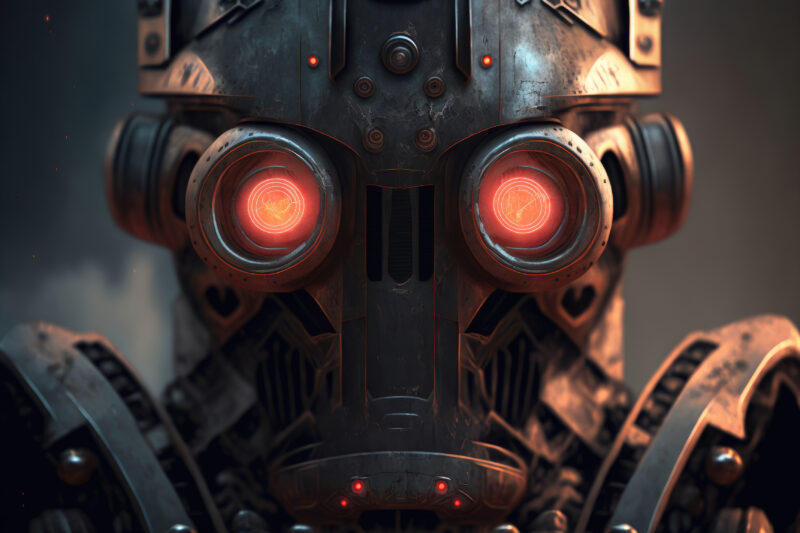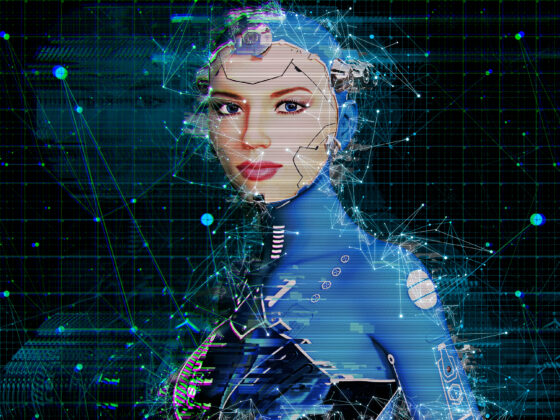For true believers, artificial intelligence will inevitably become superhuman. According to their mythos, we’re adrift in a godless cosmos. So it’s up to us to create digital deities. Or rather, it’s up to a few tech geeks to create them. The rest of us can either kneel before their altar or get shoved into the abyss.
As bots swarm into our lives, the tension between us and them is growing. Some days, it feels like we’re hurtling toward a computerized race war between nascent cyborgs and legacy humans. After too much screen time—as my synapses rearrange themselves to fit the data pouring in—it’s not clear which subspecies I belong to.
For the record, I’m more agnostic than true believer. Techies make all sorts of empty promises. They thrive on projecting mystical powers. Even so, we ignore their techno-cultural revolution at our own peril.
Tech corporations hold the real power of information control. They’re literally warping public consciousness at scale. On the military side, enforcers have the ability to blow you up from the other side of the world. You might sneer that US armed forces have created more trans officers than cyborg soldiers. But if you can’t aim your AR-15 faster than their drone can hone in, you’re sniggering from under a boot. Artificial intelligence only strengthens that foothold.
In 2018, the US Defense Advanced Research Projects Agency announced it is “focusing its investments on a third wave of AI that brings forth machines that can understand and reason in context.” The director of DARPA’s Information Innovation Office, Brian Pierce, is wildly enthusiastic about a “true symbiosis between Homo sapiens and the emerging Machina sapiens.”
A 2021 white paper from the UK Ministry of Defense affirms: “At the core of future military advantage will be effective integration of humans, artificial intelligence, and robotics into warfighting systems—human-machine teams—that exploit the capabilities of people and technologies to outperform our opponents.”
China has similar cyborg ambitions. So do Russia and NATO. “Artificial intelligence is the future,” Vladimir Putin famously proclaimed. “Whoever becomes the leader in this sphere will become the ruler of the world.”
Maybe the generals are wasting money on geek warfare. Maybe they’re just playing with new toys.
I wouldn’t count on it.
Already, we see narrow AIs exceed human pattern recognition in the specific tasks they’re designed to perform—protein modeling, radiologic analysis, battlefield surveillance, and target acquisition, to name a few. Case in point, the US defense contractor Palantir freely provides their AI to the Ukraine. It’s a major reason they’ve held out so long against the larger Russian forces.
“The power of advanced algorithmic warfare systems is now so great that it equates to having tactical nuclear weapons against an adversary with only conventional ones,” Palantir CEO Alex Karp told the Washington Post. “The general public tends to underestimate this. Our adversaries no longer do.”
In the hands of elite apex predators, these digital tools are deadly serious. When leaders aren’t deploying tech against rivals, they’re turning it on their own citizens. Remember that Clearview AI facial recognition enabled the cops to track down January 6 protesters.
Technology is power. Always has been.

Not everyone is alarmed, though. Doubters scoff at the notion of “intelligent” machines. “AI doesn’t exist,” they say. “It’s just an algorithm.” “Garbage in, garbage out.” Typically, they’re former programmers still living in the 90’s. They repeat “garbage in, garbage out” so often, it’s like they were programmed to say it.
These guys do have point. An AI is only as good as the design of its neural network and the data it’s trained on. It’s not unlike humans in that way. But when it’s good, it’s scary good. If a solid AI is trained to recognize bank statements, for instance, it can dig through mountains of garbage and find one in seconds—like a dumpster-diving Rain Man out to steal your identity.
The AI that shook me awake was AlphaZero, developed by Google’s DeepMind in 2017. Programmed with only basic game rules and the “desire” to win, this neural network taught itself to play Go, chess, and a number of video games in mere hours. The mastery of Go is particularly important. For decades, skeptics insisted no computer would grasp this ancient Chinese game. Go’s complexity, they claimed, requires deep intuition that only humans possess. It turns out that was wishful thinking.
Read the rest here:














